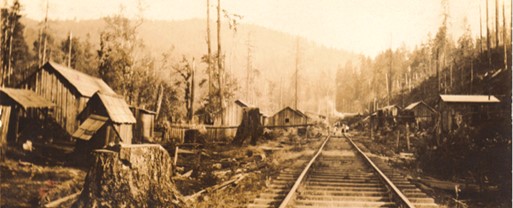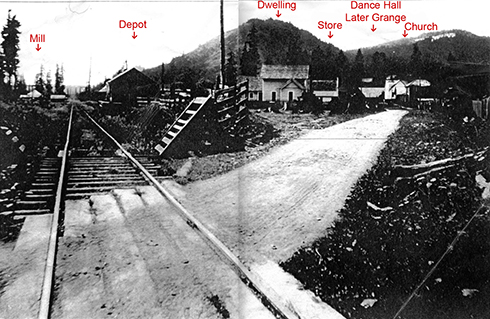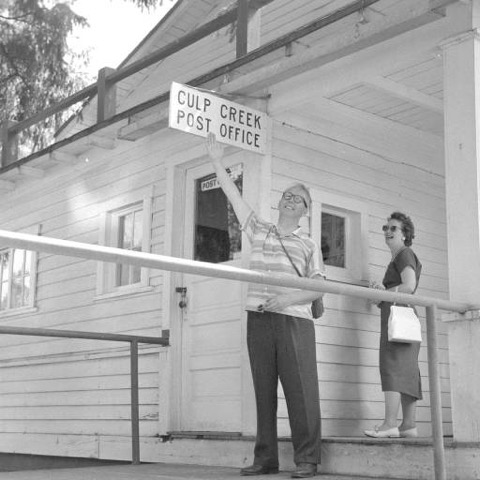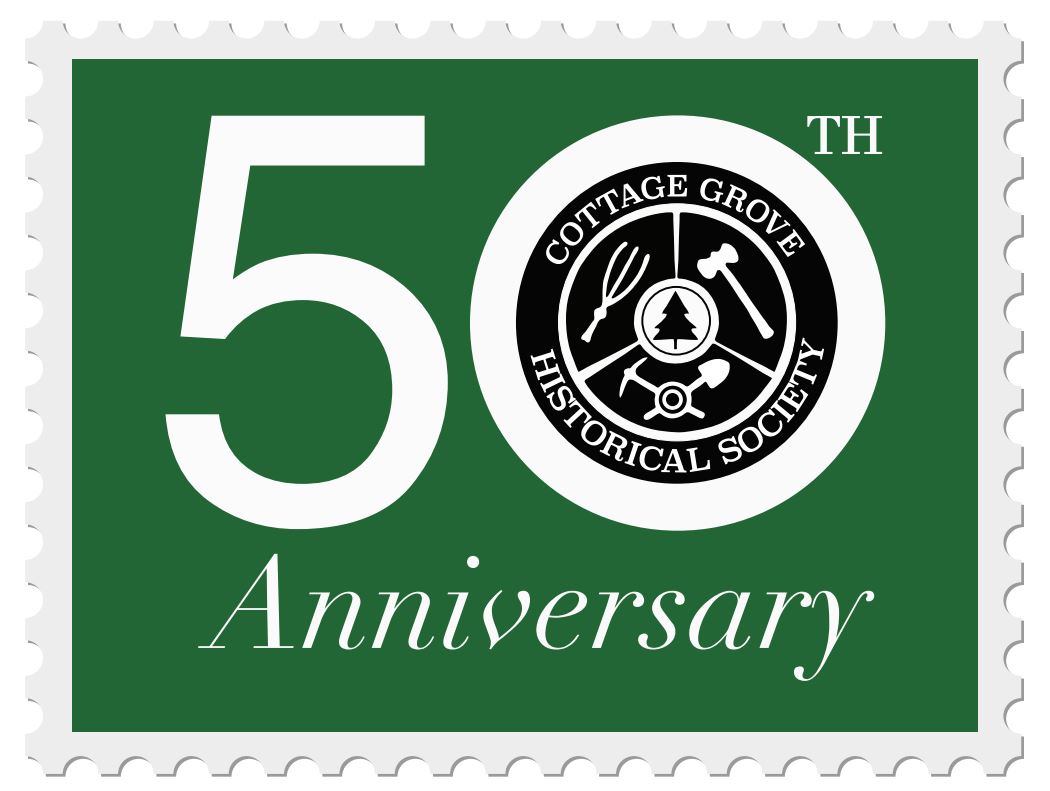By Katy Vaughn
The Kalapuya used the Row River Valley for perhaps as long as 5,000 years. You can read their story in a previous mini-lesson linked here https://cghistory.org/index.php/history/mini-lessons/10-local-history/22-kalapuya.
The first settlers came to the valley in around 1852 because of the Donation Land Claims Act of 1850. The act gave a single person 320 acres and a married couple 640 acres. They could “prove” it by improving the land for 4 years. At that point it became theirs and they were free to stay or sell out, as they saw fit. Most people sub-divided and sold out but a few stayed in the area. Some of the early claimants in the Row River Valley were John Harms (for whom Harm’s Park is named) Gordon Macauly, Mark Calvert and George Clark. Mr. Clark’s tragic death gave the Row River its name. You can get an in depth look at that story here https://cghistory.org/index.php/history/snapshots/2-uncategorised/16-row.
Although settlers were in the valley from 1852 onward, the first Post Office did not come until 1888. That was the Wildwood Post Office, near where Wildwood Falls is today. Sarah Kerr was the Postmistress and she had strong ideas about what was proper. Carrie Layng was a rough and tumble cattlewoman who did not believe in riding sidesaddle like a proper lady. This bothered Sarah so much that she did not want to allow her in the PO. The authorities were contacted and a compromise was reached so that Mrs Kerr left the premises while Mrs. Layng got her mail.
The Dorena Post Office was established in 1899. The office was named for two local women, Dora Burnette and Rena Martin. Dorena was the 3rd choice for the name of the town. The first choice, Reno, was turned down by the Postal authorities because it was too much like Keno in the Klamath Falls area. The 2nd choice, Dewey, was nixed because there was a small town out of Salem with that name. The site of the original town of Dorena is now under Dorena Lake. Severe flooding in the Willamette Valley led to the planning of a series of Dams in the surrounding hills. The Cottage Grove Dam and the Dorena Dam were a part of this project. The town of Dorena was dispersed throughout the surrounding area in the late 1940’s to make way for the reservoir. The Grange moved down river a couple of miles and the School and Post Office moved up river about 4 and 6 miles respectively.
The discovery of gold in the Bohemia Mining District had a huge effect on the Row River Valley.
In 1902 a railroad line was built from Cottage Grove up through the valley. The intention was that it would be over 30 miles long and go all the way to the mines. The cheapest 15 miles were built and the line was never completed. Although the railroad was built to supply the mines, it ended up being a boon for logging and milling as it allowed an easy way to get the product down the hill to market. Shortly after the line was built there were 23 small lumber mills up and down the valley. By 1915 the railroad was purchased by a lumberman and it was used to transport the product of the mills until its demise. It was in 1915 that a funny little passenger car called the Galloping Goose was put into service on the line. It looked like a streetcar and had benches all the way around and a comfy pot-bellied stove in the middle. Rides were a nickel per stop and you could ride the whole line for a dollar. At last farmers, housewives and other valley residents could go to town in the morning and come home in the evening without having to take a grueling wagon ride. In 1917 the Goose had 17,000 riders. Alas, the days of efficient public transportation came to an end in the 1920’s as the age of the automobile took hold.
The mill town of Disston was established in 1906. The Disston Saw Company offered the mill there free saws if they would call the town Disston. Times were tough, so they said yes, and the rest is history. Culp Creek was established in 1925 and was named for early resident John Culp, who farmed along its banks. Earlier in his life Mr Culp had been falsely accused of murder near Salem and spent some years in jail before his accuser recanted his tale. Mr Culp was freed and his aunt and uncle, who lived in Cottage Grove, picked the poor fellow up from the prison gates and brought him home with them. He ended up marrying a local girl who lived on Sharps Creek and had a happy life from then on.
